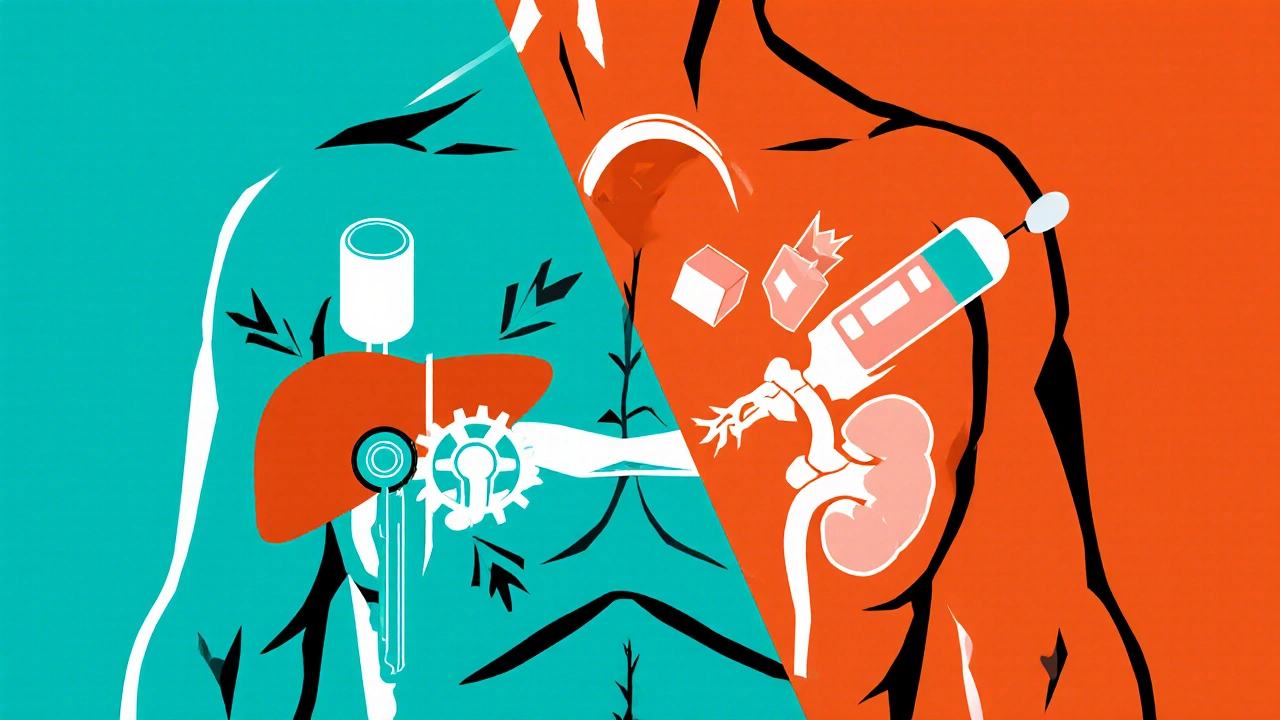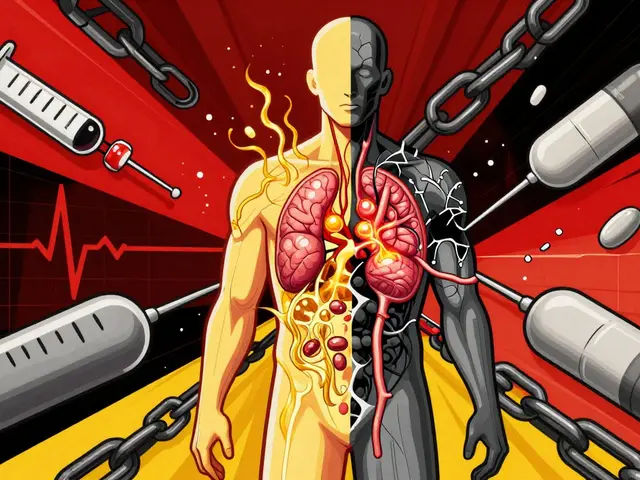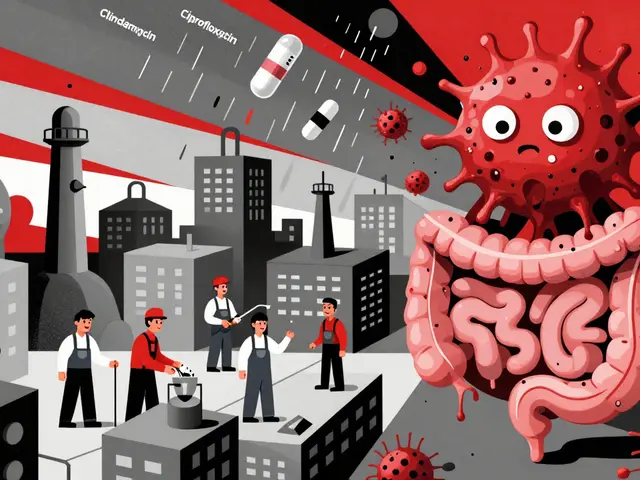Renal Function: What It Is, How It Works, and What Affects It
When we talk about renal function, the ability of the kidneys to filter blood, remove waste, and maintain fluid and electrolyte balance. Also known as kidney function, it’s one of the most vital systems in your body—yet most people only think about it when something goes wrong. Your kidneys don’t just make urine. They control your blood pressure, produce hormones that help make red blood cells, and activate vitamin D for strong bones. If renal function drops even a little, it can ripple through your whole system—leading to fatigue, swelling, high blood pressure, or even heart problems.
Several things can hurt renal function. kidney disease, a gradual loss of kidney function over time, often from diabetes or high blood pressure is the biggest culprit. But medications like NSAIDs, antibiotics, or even some antidepressants can stress your kidneys if used long-term. creatinine levels, a waste product from muscle breakdown that kidneys clear from the blood are a common way doctors check how well your kidneys are working. High creatinine usually means your kidneys aren’t filtering well. Another key number is eGFR, estimated glomerular filtration rate, which tells you how much blood your kidneys filter each minute. A normal eGFR is above 90. Below 60 for three months or more means chronic kidney disease.
What you eat, how much water you drink, and whether you smoke or take painkillers daily all play a role. People with diabetes or high blood pressure need to watch their renal function closely—these conditions quietly damage the tiny filters in your kidneys over years. Even older adults see a natural decline, but that doesn’t mean it’s normal to feel tired, swollen, or urinate less. Some drugs, like hydroxyurea or certain antibiotics, can affect kidney performance, which is why doctors monitor lab work during treatment. You don’t need to be sick to care about your kidneys. Small changes—cutting back on salt, staying hydrated, avoiding over-the-counter pain meds unless needed—can make a big difference.
The posts below cover real cases where medications, lifestyle, or chronic conditions impact renal function. You’ll find details on how drugs like citalopram, lisinopril, diclofenac, and hydroxyurea interact with your kidneys, what warning signs to watch for, and how to protect your kidney health while managing other conditions. Whether you’re on long-term medication, managing diabetes, or just want to understand your latest blood test, this collection gives you clear, practical info—no fluff, no jargon, just what matters for your health.

Metformin and Contrast Dye Interaction: Risks of Lactic Acidosis & Renal Impact
A practical guide to metformin and contrast dye interaction, covering lactic acidosis risk, renal function assessment, updated FDA guidelines, and step‑by‑step management for clinicians.
read more




